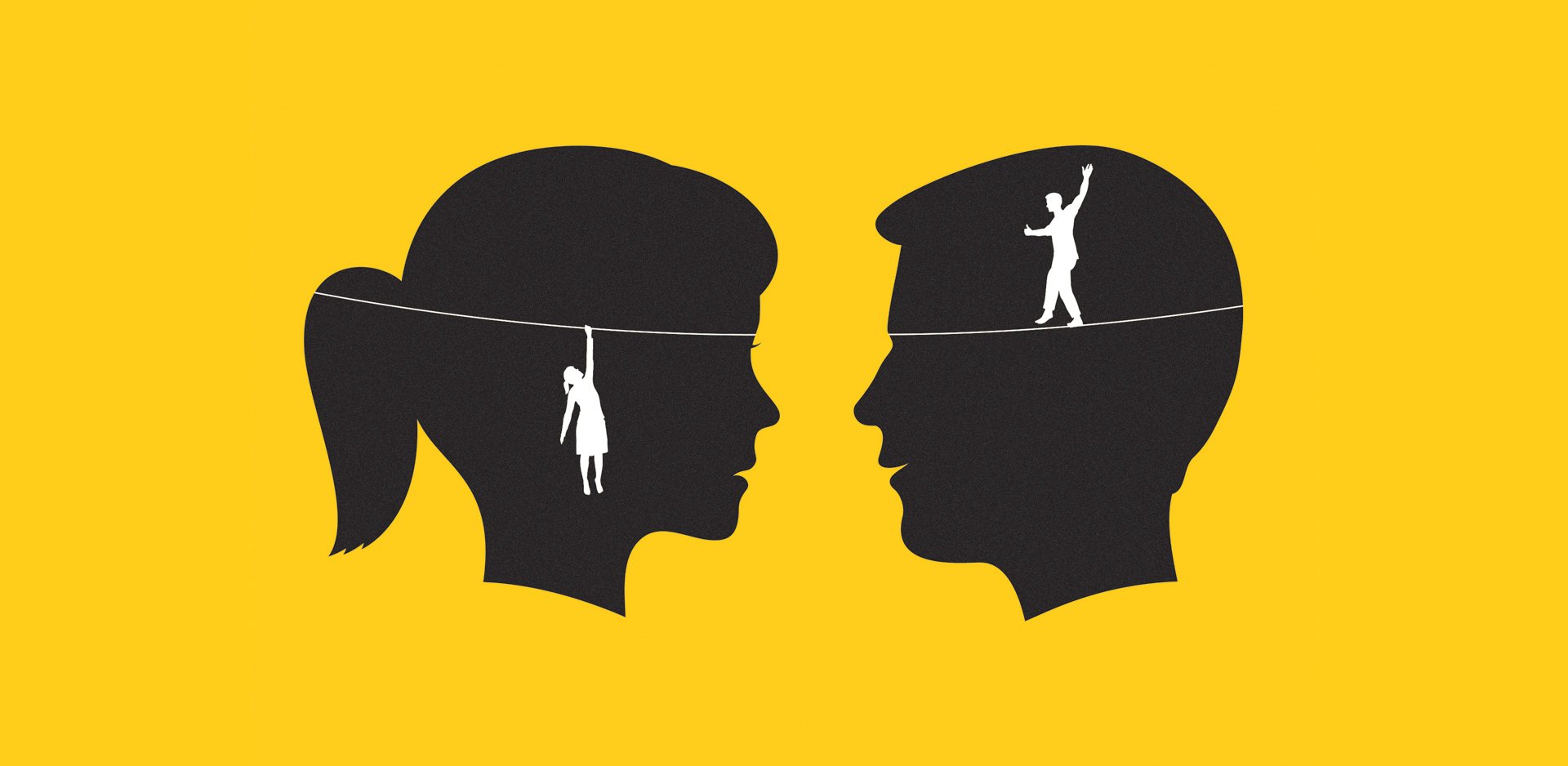Evidence shows that women are less self-assured than men—and that to succeed, confidence matters as much as competence. Here’s why, and what to do about it.
By: KATTY KAY AND CLAIRE SHIPMAN
Reprinted from The Atlantic magazine
For years, we women have kept our heads down and played by the rules. We’ve been certain that with enough hard work, our natural talents would be recognized and rewarded.
We’ve made undeniable progress. In the United States, women now earn more college and graduate degrees than men do. We make up half the workforce, and we are closing the gap in middle management. Half a dozen global studies, conducted by the likes of Goldman Sachs and Columbia University, have found that companies employing women in large numbers outperform their competitors on every measure of profitability. Our competence has never been more obvious. Those who closely follow society’s shifting values see the world moving in a female direction.
And yet, as we’ve worked, ever diligent, the men around us have continued to get promoted faster and be paid more. The statistics are well known: at the top, especially, women are nearly absent, and our numbers are barely increasing. Half a century since women first forced open the boardroom doors, our career trajectories still look very different from men’s.
Some observers say children change our priorities, and there is some truth in this claim. Maternal instincts do contribute to a complicated emotional tug between home and work lives, a tug that, at least for now, isn’t as fierce for most men. Other commentators point to cultural and institutional barriers to female success. There’s truth in that, too. But these explanations for a continued failure to break the glass ceiling are missing something more basic: women’s acute lack of confidence.
The elusive nature of confidence has intrigued us ever since we started work on our 2009 book, Womenomics, which looked at the many positive changes unfolding for women. To our surprise, as we talked with women, dozens of them, all accomplished and credentialed, we kept bumping up against a dark spot that we couldn’t quite identify, a force clearly holding them back. Why did the successful investment banker mention to us that she didn’t really deserve the big promotion she’d just got? What did it mean when the engineer who’d been a pioneer in her industry for decades told us offhandedly that she wasn’t sure she was really the best choice to run her firm’s new big project? In two decades of covering American politics as journalists, we realized, we have between us interviewed some of the most influential women in the nation. In our jobs and our lives, we walk among people you would assume brim with confidence. And yet our experience suggests that the power centers of this nation are zones of female self-doubt—that is, when they include women at all.
 Want to learn more? Take the authors’ Confidence Quiz HERE
Want to learn more? Take the authors’ Confidence Quiz HERE
We know the feeling firsthand. Comparing notes about confidence over dinner one night last year, despite how well we knew each other, was a revelation. Katty got a degree from a top university, speaks several languages, and yet had spent her life convinced that she just wasn’t intelligent enough to compete for the most-prestigious jobs in journalism. She still entertained the notion that her public profile in America was thanks to her English accent, which surely, she suspected, gave her a few extra IQ points every time she opened her mouth.


